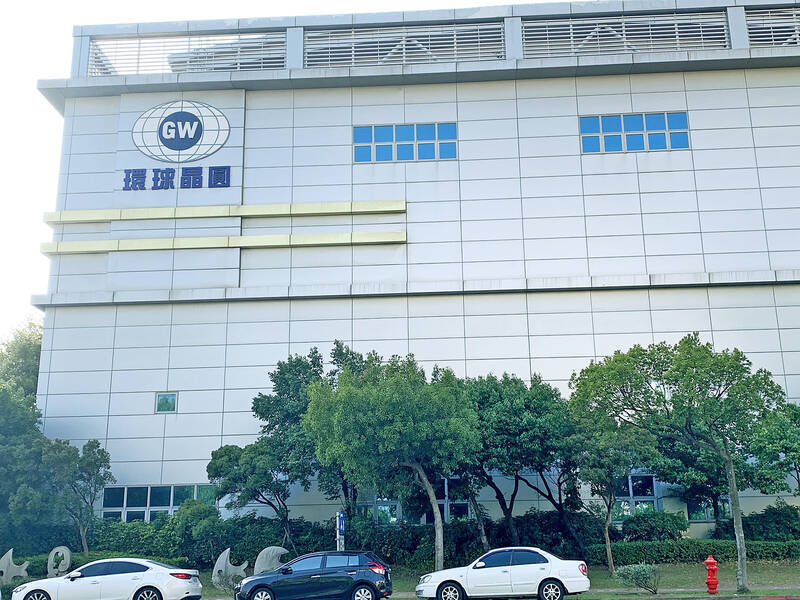GlobalWafers Co (環球晶圓) yesterday said shipments from most of its factories that suffered hacker attacks last week are expected to resume today.
GlobalWafers, the world’s third-largest silicon wafer maker, said in a statement that information systems operated by some of its factories suffered hacker attacks on Wednesday last week.
The company said its cybersecurity mechanism activated when the attacks were detected and it later also entrusted outside cybersecurity experts to boost its defenses and restore the targeted information systems.

Photo: Grace Hung, Taipei Times
A through investigation confirmed critical information was not accessed, GlobalWafers said.
To lower the risk, GlobalWafers said it partially shut down its operating systems during the initial phase of the attacks, impacting production and shipments at certain plants.
However, shipments were partly restored last week and most are expected to return to normal today, it said.
As the damage varied from factory to factory, insurance compensation is still being calculated, GlobalWafers said, adding that the company will continue to upgrade web communications and strengthen information safety infrastructure.
GlobalWafers did not disclose how many factories were attacked or the locations of the affected plants.
The company runs 18 sites in nine countries around the world including Taiwan, China, the US, Japan, Denmark, South Korea, Italy, Malaysia and Singapore.

South Korea’s equity benchmark yesterday crossed a new milestone just a month after surpassing the once-unthinkable 5,000 mark as surging global memory demand powers the country’s biggest chipmakers. The KOSPI advanced as much as 2.6 percent to a record 6,123, with Samsung Electronics Co and SK Hynix Inc each gaining more than 2 percent. With the benchmark now up 45 percent this year, South Korea’s stock market capitalization has also moved past France’s, following last month’s overtaking of Germany’s. Long overlooked by foreign funds, despite being undervalued, South Korean stocks have now emerged as clear winners in the global market. The so-called “artificial intelligence

NEW IDENTITY: Known for its software, India has expanded into hardware, with its semiconductor industry growing from US$38bn in 2023 to US$45bn to US$50bn India on Saturday inaugurated its first semiconductor assembly and test facility, a milestone in the government’s push to reduce dependence on foreign chipmakers and stake a claim in a sector dominated by China. Indian Prime Minister Narendra Modi opened US firm Micron Technology Inc’s semiconductor assembly, test and packaging unit in his home state of Gujarat, hailing the “dawn of a new era” for India’s technology ambitions. “When young Indians look back in the future, they will see this decade as the turning point in our tech future,” Modi told the event, which was broadcast on his YouTube channel. The plant would convert

‘SEISMIC SHIFT’: The researcher forecast there would be about 1.1 billion mobile shipments this year, down from 1.26 billion the prior year and erasing years of gains The global smartphone market is expected to contract 12.9 percent this year due to the unprecedented memorychip shortage, marking “a crisis like no other,” researcher International Data Corp (IDC) said. The new forecast, a dramatic revision down from earlier estimates, gives the latest accounting of the ongoing memory crunch that is affecting every corner of the electronics industry. The demand for advanced memory to power artificial intelligence (AI) tasks has drained global supply until well into next year and jeopardizes the business model of many smartphone makers. IDC forecast about 1.1 billion mobile shipments this year, down from 1.26 billion the prior

People stand in a Pokemon store in Tokyo on Thursday. One of the world highest-grossing franchises is celebrated its 30th anniversary yesterday.